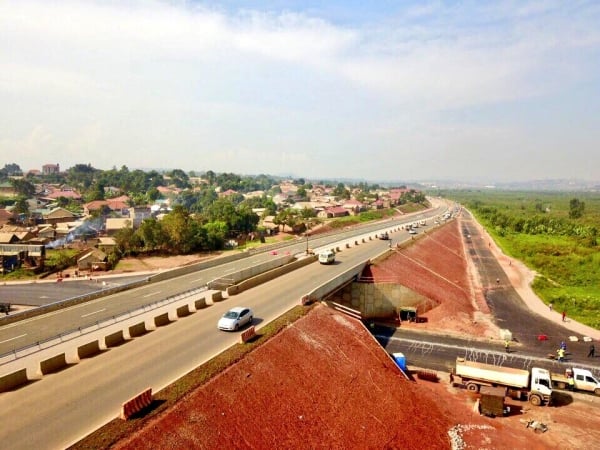Prime
Museveni directs removal of roadblocks on highways

Police roadblocks during the Covid lockdown in Industrial Area, Kampala. President Museveni has banned roadblocks on highways. PHOTO/ FILE
What you need to know:
- The President says roadblocks hinder free movement of goods and services.
President Museveni has directed the removal of all roadblocks on the highways with immediate effect.
The President is said to have given the directive to Prime Minister Robinah Nabbanja on Wednesday, and she is supposed to ensure that concerned agencies implement the orders.
Ms Nabbanja said there are more than 39 roadblocks on the highways that impede the free movement of goods.
“Yesterday, I got a call from the President and he told me that he has been informed of the number of roadblocks we have from one border to another. …Some people told him there are about 39 roadblocks. He told me to remove them,” Ms Nabbanja told business leaders at the Presidential Chief Executive Officers (CEO) Forum at Serena Hotel in Kampala yesterday.
Mr Museveni has been vocal against roadblocks, saying they do not help in crime detection, but provide a fertile ground for corruption and delay of movement of goods.
The President also banned them in 2014. They were re-established in 2016 in a traffic operation dubbed Fika Salama, which was intended to fight errant motorists. President Museveni again ordered their removal over corruption.
Roadblocks were again re-established in 2020 during the enforcement of Covid-19 regulations and many had not been removed.
President Museveni told Ms Nabbanja that the roadblocks jeopardise the free movement of goods and services across the East African Community member States.
Reactions
The business community welcomed the presidential directive.
Kampala Capital City Traders Association (KACITA) spokesperson Issa Ssekitto said although the roadblocks act as a security tool to detect movement of criminals, the enforcers had turned it into non-tariff barriers.
“Uganda has been using them (roadblocks) to check on how much taxes you have paid as if there are no proper offices at the borders and entry points to do that,” Mr Ssekitto said.
The Uganda Manufacturers’ Association (UMA) Communications Officer, Ms Lydia Tusiime, said: “I appeal to regional member states to reciprocate and also facilitate the free movement of goods and services”.
The Uganda People’s Defence Forces (UPDF) spokesperson, Brig Gen Felix Kulayigye, said roadblocks are check points by Uganda Revenue Authority (URA).
“They are not UPDF roadblocks, they are URA checkpoints. I know one on Tororo-Mbale road, I know the one on the road from Malaba. Yes, those are checkpoints of URA,” Brig Kulayigye said.
Police spokesperson Fred Enanga said they would meet at the policy advisory committee to come up with strategies on how best they can implement the directive.
“We are waiting for the directives and once it’s acknowledged by the top leadership of the force, we shall be able to come up with the best strategy on how to address that concern,” Enanga said.
Museveni’s encounter
President Museveni has been against erecting of roadblocks since he took over power in 1986.
He often cited several incidents during their guerrilla war in the 1980s, where he was able to traffic guns through heavily manned roadblocks.
In 2014, Mr Museveni witnessed the checkpoint scenario at Mabira Forest when he found traffic jam of cargo carrying trucks.
He talked to truck drivers, who told him that police officers extorted money from them. His attempt to talk to police officers at the checkpoint was futile after they took off upon seeing him move close to them.
President Museveni said roadblocks are intended for personal interests of the officers.




